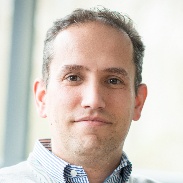
Ricardo Manuel
Benites Da Costa
Personal Investigador
Department: PERSONAL INVESTIGADOR
Research group: HERRAMIENTAS DE BIOTECNOLOGÍA DE PLANTAS FRENTE AL CAMBIO CLIMÁTICO
Email: ricardocosta@usal.es
Ricardo has a dual profile, as developmental biologist and as research manager, technology transfer professional. He currently acts a manager of the CIALE/AGRIENVIRONMENT "Unidad de Producción Agrícola y Medioambiente" under the direction of Professor Óscar Lorenzo and Celestino Santos Buelga. Graduated in Biochemistry at the University of Coimbra, he joined the prestigious Gulbenkian PhD program in Biology and Medicine at Instituto Gulbenkian de Ciencia (Portugal), to then join Prof. Sir John Gurdon’s lab (Physiology and Medicine Nobel 2012) at the Wellcome CR/UK Research Institute at the University of Cambridge (UK). He started his PhD under the guidance of Dr. Aaron Zorn (Cincinnati Children’s Hospital, USA) part of the cohort of PhD students on the Developmental Biology Wellcome Trust PhD Program. Ricardo devoted the first half of his PhD thesis screening for endodermal differentially expressed genes, providing the largest set of regionally expressed markers available at that time, and the second part on the characterisation of primitive myeloid cells at the University of Cambridge under the supervision of Dr. Enrique Amaya. Ricardo drove the work on ETS-transcription factors that acted as the earliest known transcription factors specific for primitive myeloid cells. He finished his PhD thesis in 2004 on both subjects. He followed on working on the earliest blood specification decisions and signalling during amphibian embryo development. These works led to a new research line in Dr. Enrique Amaya laboratory and the study of role of primitive myeloid cells on embryonic wounding and regeneration, of which Dr. Amaya was a pioneer with the establishment of the Healing Foundation Research Center at the University of Manchester. Ricardo secured funding as the first Healing Foundation postdoctoral fellow (2006-2010). Ricardo interest in the role of blood cell types during embryonic development initiated a collaboration with Dr. Miguel Torres, then deputy director of CNIC (Centro Nacional de Investigaciones Cardiovasculares) on the fate and function of CD41low cells in the early developing embryo. There was some evidence that a branch of the megakaryocyte cell lineage assists the development, trimming and patterning of lymphatic and vascular vessels in the developing zebrafish embryo, events that were evaluated under high-speed, high-resolution confocal microscopy. This research program was supported by an IEF - Marie Curie fellowship. On a turn of events and back from a stint in the private sector, he returned to CNIC and the laboratory of Dr. Nadia Mercader, a recent awardee of an ERC starting Grant. Ricardo worked on the training of junior staff and on establishment and implementation of new collaborations (2014-2018 period). The most relevant milestone was the coordination, drafting and submission of the 4D-HEART European European Industrial Training Network initiated in 2017 (IP: Miguel Torres and Nadia Mercader). Since 2013 Ricardo specialised in research management and technology transfer, through executive level training at IE Instituto de Empresa Business School – Entrepreneurship Skills for Scientists and Researchers; ESADE – Strategic Innovation; or the Institute of Leadership and Management, London on Change Management and also through experience at a University spin-off (Zaragoza), Business Development Manager at VIB, Belgium [**leaders in biotech tech transfer output in Europe**]; or as Head of Technology Transfer and Business Development at CRAG, Barcelona. Ricardo acts as the promotor of the green and digital transition project financed by the MCIN on the use of naturally synthesised plant volatiles to control insect pests. He is also deeply involved with the EC2U Erasmus+ project of European Alliance of City-Universities, in particular on the connection of the RI4C2 H2020 Project - Research and Innovation for Cities and Citizens - with the next phase of the European University Alliance.




